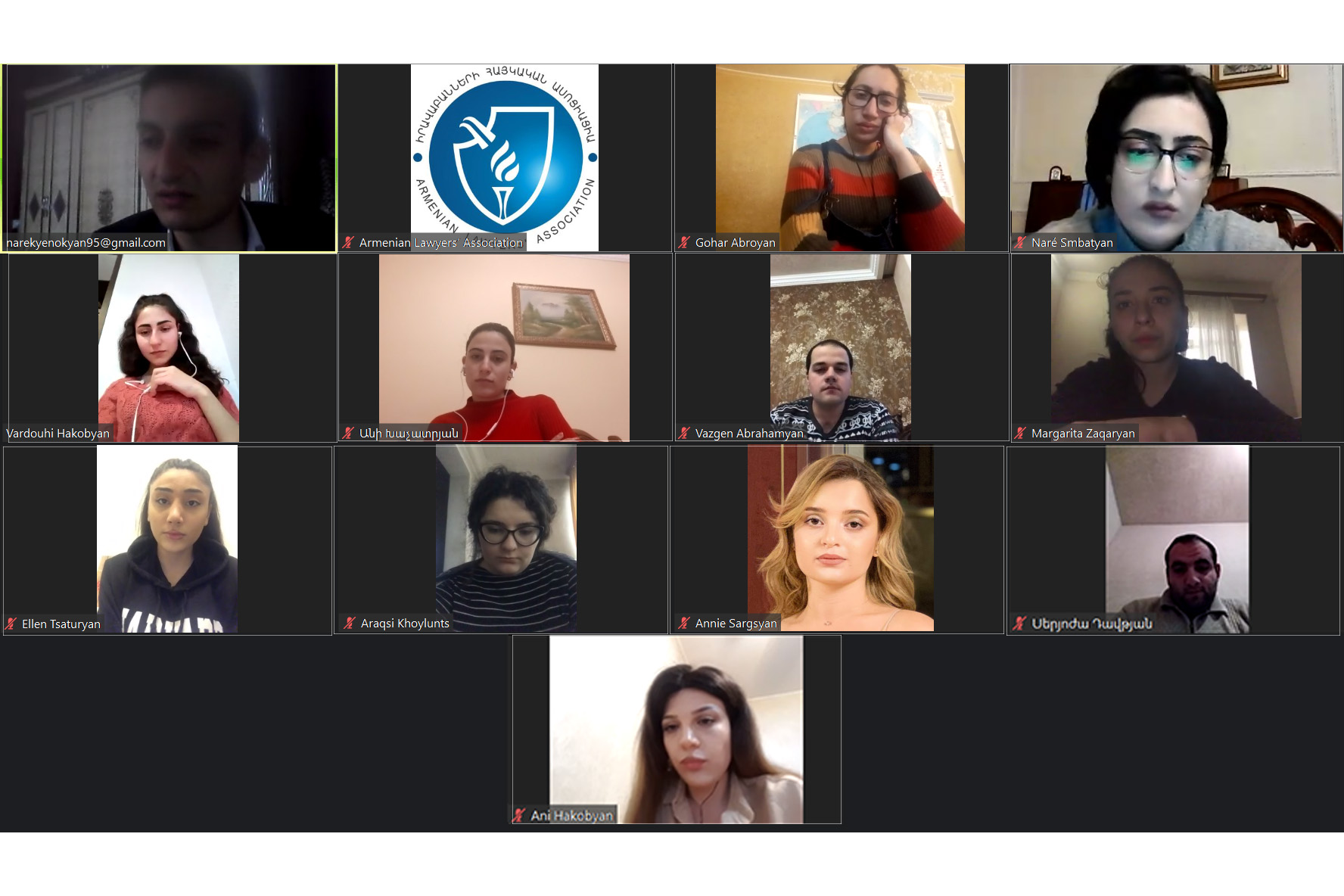Presentation of the Stolen Assets Recovery Institute; Introduction of International Experience; Mechanisms of Operation in the Republic of Armenia: The Distance Learning Course of the ACSYL was held

On April 23, 2020, the regular distance learning course of the 5th stream of the Anti-Corruption School for Young Leaders took place. The topic of the course was “Presentation of the Stolen Assets Recovery Institute; Introduction of International Experience; Mechanisms of Operation in the Republic of Armenia”. Mr. Narek Yenokyan, an anti-corruption expert at the Armenian Lawyers’ Association, delivered the lecture.
During the training, the participants studied the international experience of recovery of the assets stolen from the society through corruption-related crimes. The study of international experience shows that the recovery of assets takes place in the following main stages:
Preliminary investigation stage. The investigator receives information about the crime or the stolen asset and begins the search for the authenticity of the information received. At this stage, financial intelligence is of exceptional importance in determining whether the initial information provides reliable information about the stolen assets and their potential location. At this stage, the answer to the following question is essential. Whether a crime had taken place and who had committed the crime?
Trial stage. This stage begins when the investigative and prosecution bodies have completed their work and submitted the case to the court. This stage includes the trial and the publication of the decision or verdict. If the accused is convicted of a crime, the court in its final judgment decides to confiscate the assets acquired after the committing the crime. In case of non-appealable legal act, the status of the assets is transformed from “frozen” to “confiscated”.
Return stage. Assets are returned to their rightful owners, taking into account the internationally recognized obligations to share assets and the rights of bona fide third parties. At this stage, it is important to determine the amount of assets that are subject to return and the methods.
At the end of the training, the students were assigned their next group task.
